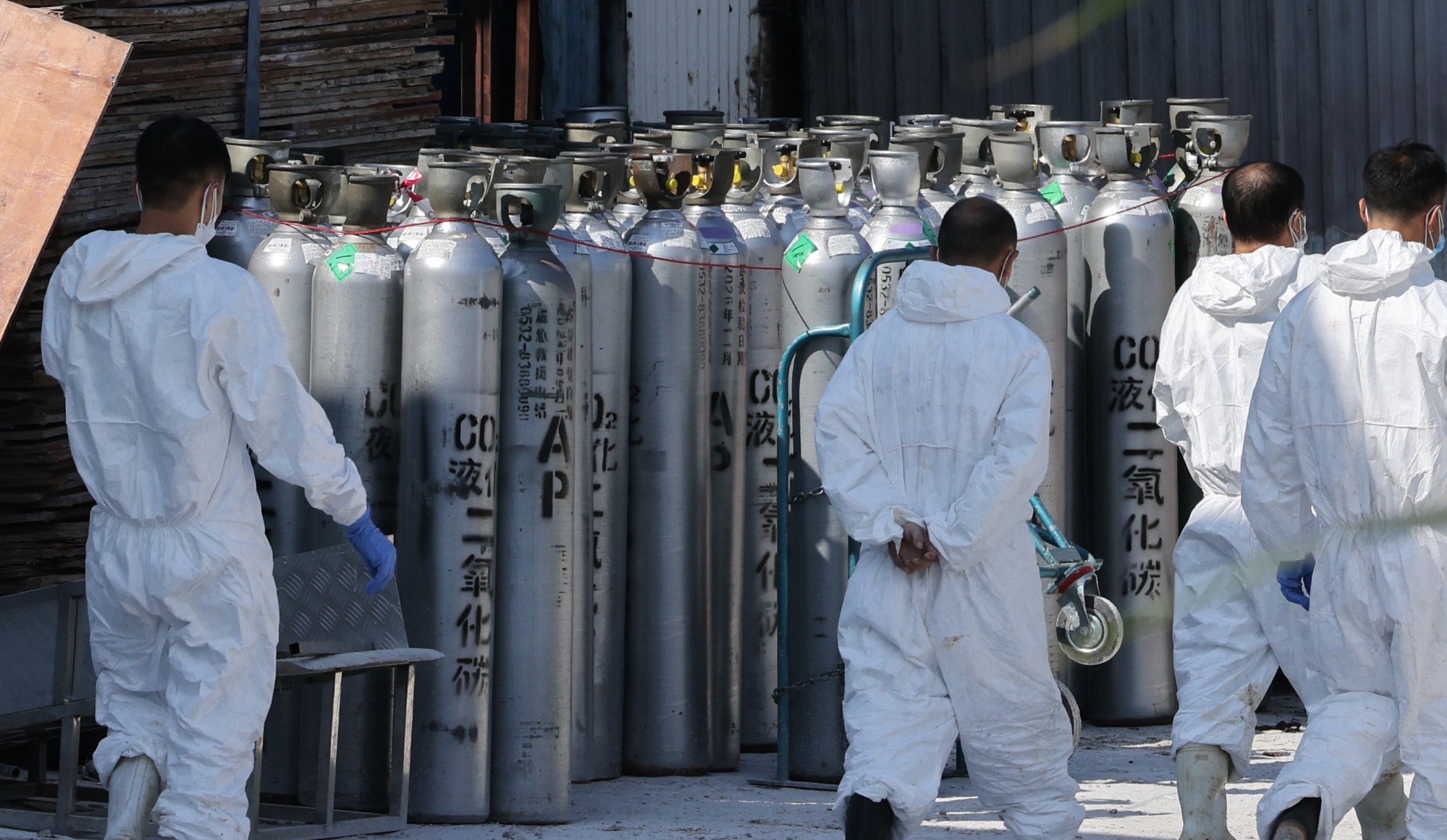
Can Hong Kong learn to live with African swine fever? Expert says mass pig culls not the answer amid largest recorded outbreak
- Veterinary expert calls for government to change tack after city slaughtered 14,000 pigs from eight farms in response to outbreak that started last November
- Industry chiefs urge officials to step up testing and increase financial support as they warn some farms could take up to two years to recover from outbreak
Hong Kong should learn to live with African swine fever and move away from mass pig culls, a top veterinary expert has said, as farmers appealed to authorities to step up financial support and testing measures amid the city’s largest outbreak of the disease.
Since November, the government has culled more than 14,000 pigs, the biggest such operation on record, after samples from eight farms in Lau Fau Shan, San Tin and Kwu Tong tested positive for the virus. The outbreak affected about 20 per cent of the city’s 43 pig farms.
City and overseas health authorities have said humans cannot be infected by African swine fever and the condition does not pose any food safety risk. But the mortality rate for pigs could reach 100 per cent, with no effective vaccines or treatments available at present.

Dirk Pfeiffer, chair professor of One Health at City University’s College of Veterinary Medicine, said Hong Kong would need to learn to live with the virus.
“I think we may well have to do the same as most affected countries in the region, including mainland China, Vietnam and the Philippines, [which are all] living with the virus,” he said.
The veterinary expert also pointed to the large number of pig farms in Southeast and East Asia with low biosecurity measures and the region’s very high pork consumption as reasons for a change of tack.
“Under these circumstances, a control policy based on the culling of all pigs on infected farms is neither justifiable nor sustainable,” he said.
Pfeiffer said one approach was to adopt selective culling through the effective separation of pig pens at farms, with only the animals in affected areas put down.
He added that the strategy was already being used on the mainland and in Vietnam and that he hoped Hong Kong could follow suit.
Hong Kong recorded its first case of African swine fever in 2019 after a pig imported from the mainland tested positive at the Sheung Shui slaughterhouse. Another case was found later the same year. The cases led to two culling operations where more than 10,000 pigs were slaughtered.
The first local outbreak happened in 2021 but was limited to a single farm.
Pfeiffer said live pigs, pork products and contaminated clothing and vehicles could have helped transmit the virus in the latest outbreak.
He added infected wild pigs could also have spread the disease to domesticated animals.
Chan Kin-yip, the chairman of the Federation of Hong Kong Agriculture Associations, said he believed the government’s initial efforts to collect infected carcasses and excrement could have caused cross-contamination among pig farms.
He added authorities later started to dispose of carcasses and excrement at a landfill far from uninfected livestock in the hopes of preventing cross-contamination.
Chan, who co-owns a pig farm with about 1,900 animals, said he feared the outbreak could lead to a decline in the industry.
He explained that farms affected by large-scale culls would need about 18 to 24 months to thoroughly disinfect their facilities and raise new stock.
“We are concerned about whether pig farmers will be able to resume business 24 months later,” Chan said.

The industry chief said more government financial support, on top of the existing market price-based compensation for affected farms, was needed as businesses would not be able to generate income for up to two years.
“There should be [financial] support for farmers’ daily lives … similar to the Comprehensive Social Security Assistance scheme,” Chan said.
Hong Kong Livestock Industry Association vice-chairman Lam Wing-yuen said he believed the outbreak would cause the industry to downscale, adding the city was experiencing its most serious outbreak so far.
“I can say that it will not even be a short amount of time before the production quantity of Hong Kong pig farms drops by half or even more,” he said.
Lam, who also owns a pig farm, said the cause of the outbreak could be the lack of government testing for the virus on live pigs and pork imported from the mainland, noting an outbreak was also taking place across the border.
He added another problem was that authorities did not enforce laws preventing people from bringing in pork or pork products from the mainland or overseas to Hong Kong.
“When it gets to a point where we cannot defend against the virus any more, there will be a day where cases will skyrocket,” he said. “This is the situation we are in now.”
Lam said it was impossible for the industry to live with the disease as the virus affected the amount of piglets each sow could produce and would start to cut into farmers’ profits.
He explained a healthy sow could give birth to 10 piglets, but one infected with African swine fever would only produce three to four.
Pfeiffer appealed to Hong Kong farms to boost biosecurity precautions, such as good fencing to limit contact with wild pigs, and make sure faecal waste bins were handled properly.
A Centre for Food Safety spokesman said city authorities took African swine fever in the city and the wider industry seriously and that live pigs imported from the mainland underwent health checks.
He added no live pigs brought in from the mainland had tested positive for the virus in the past four years.


